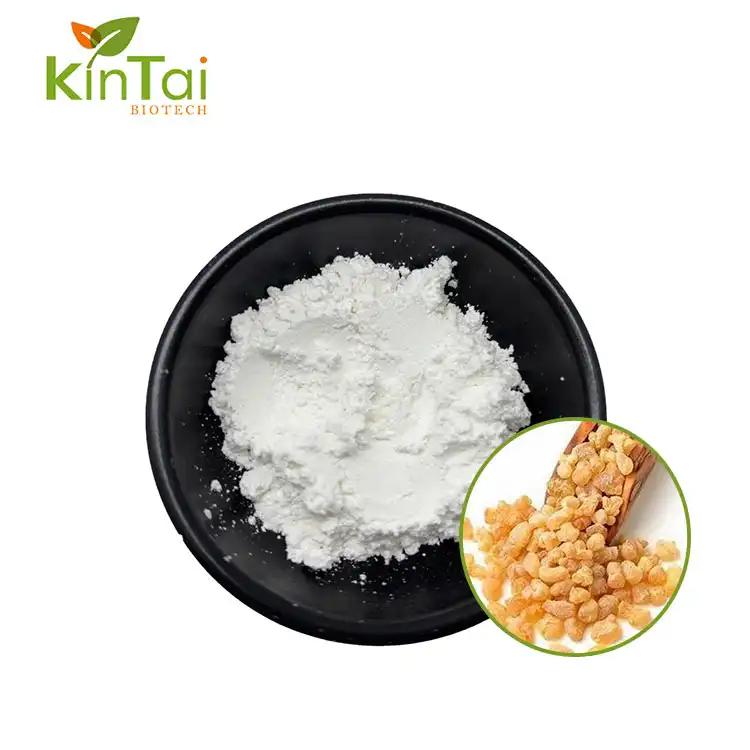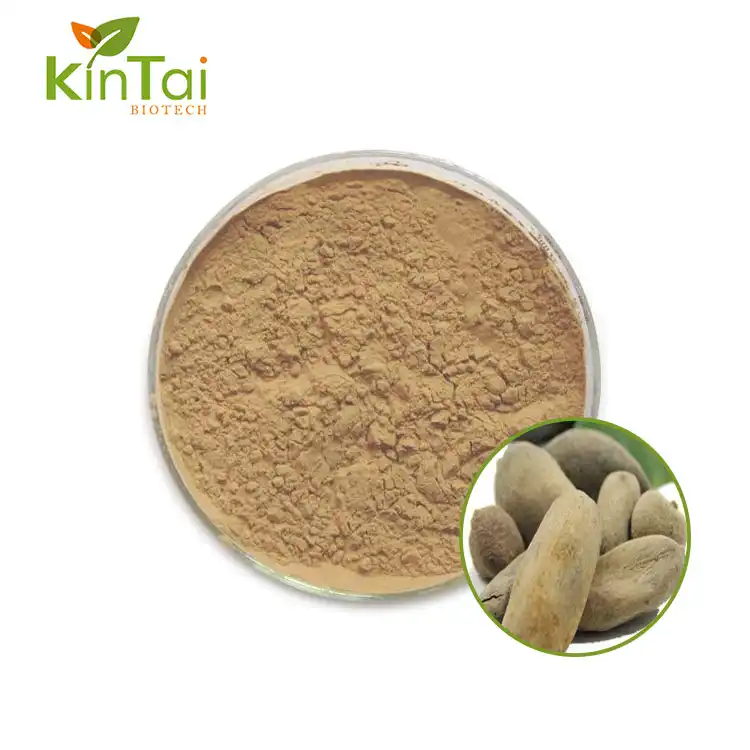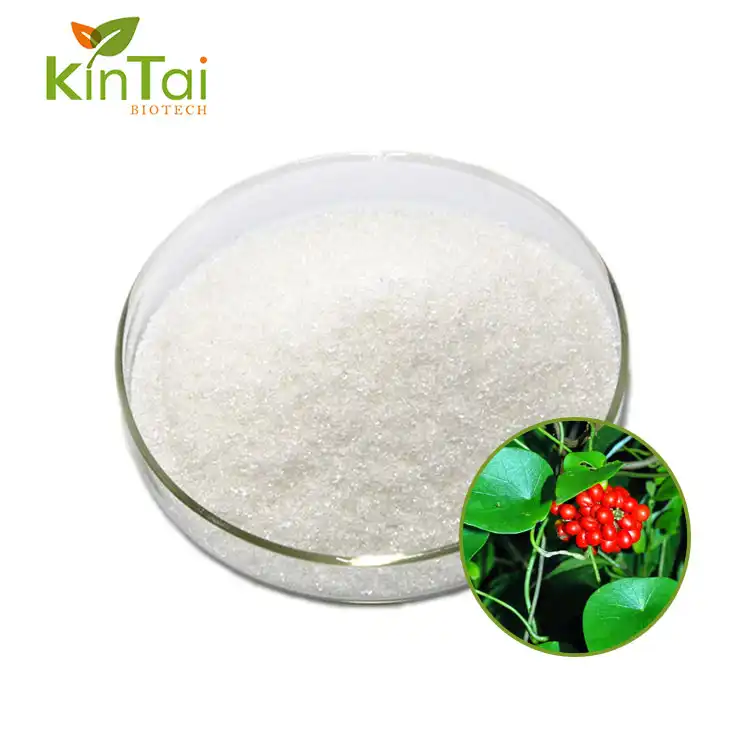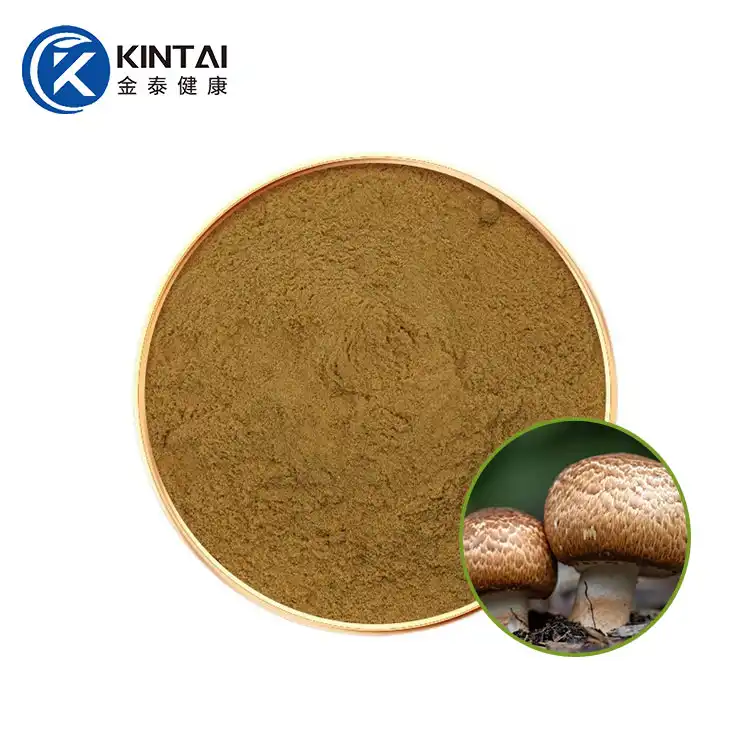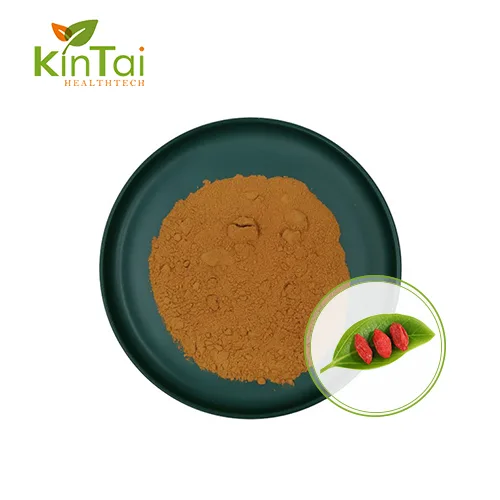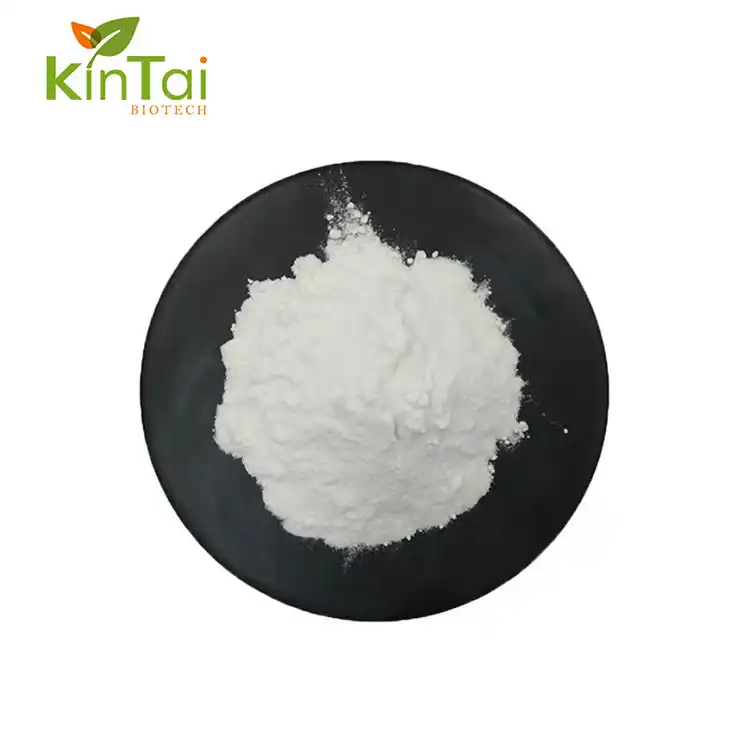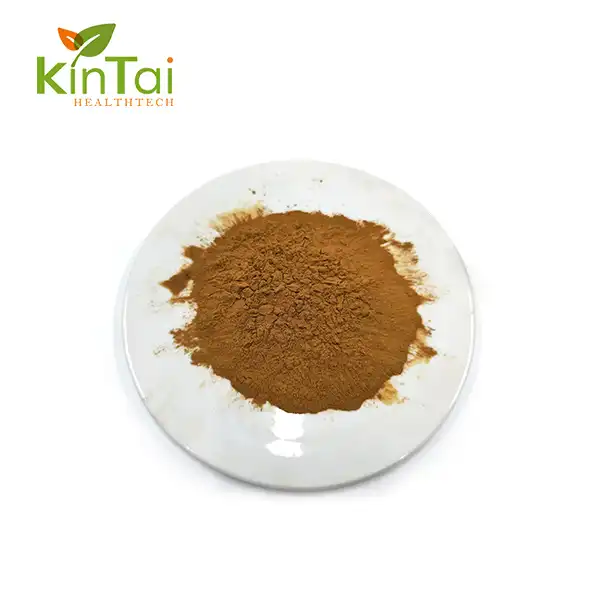Is ashwagandha powder or extract better?
2024-05-08 10:31:35
What are the key differences between ashwagandha powder and extract?
Known by a different designation, Withania somnifera, ashwagandha is a renowned herb that is frequently used in traditional Indian medicine. It is generally accepted that it may have beneficial physiological consequences, such as relieving anxiety, boosting defenses, and enhancing the way the brain works. Powder and extract are the two primary varieties of the herbal remedy ash that are accessible. Even though there are rewards that are comparable among both of them, there is still substantial variation to be taken into consideration.
The entirety of the plant's roots are ground into a fine powder that becomes an herb called powder. Some of its curative effects have been attributed to its multiple chemical constituents, which include flavonoids, alkaloids, and withanolides.
By comparison, ashwagandha root extract powder is a highly concentrated form of the plant itself, geared up from the stem by separating its active components using solvents such as water or ethanol. After that, the substance being extracted typically gets standardized by adding an established amount of oxide.
One of the main distinctions between ashwagandha powder and extract is the level of concentration that contains the substances that are active. Despite the fact that both formulations consist of attractive pathogens, the extract contains higher withanolides than the powder provides. It has been speculated that ashwagandha's bioactive element, oxide, is to blame for many of its beneficial effects on health. Consequently, the extract may represent an improved choice if you want to search for ashwagandha with greater energy and consistency.

How does the concentration of withanolides in ashwagandha extract compare to powder?
There are a few considerations to take into consideration when evaluating the withanolide percentages in the herbal remedy ash extract and powder. In particular, the concentration may fluctuate depending on what type of powder or extract you choose to take. It plays an essential role to always verify whatever is on the specifications or label in order to make sure that you receive the right details.
But in comparison to powder, an herb called ash extract generally contains a greater percentage of withanolides. It also suggests that the extract would be a more suitable option for you if you have particular goals and expect to derive benefits from withanolides.
Let us take a closer look at the proportions that are typically found in premium remedies called extract and powder to help create a more complete picture. A legitimate pure ashwagandha extract could consist of between 2.5% and 5% withanolides. On the flip side, the powder rendition often ranges from 0.2%–0.5% with anolide percentage. The quality of the original species and the method of extraction employed are likely to impact the percentages above, so it ought to be remembered to remain cognizant of that.
You will be more likely to succeed in obtaining an increased amount of withanolides if you settle on the extract. This is for the reason that Ashwagandha's advantageous elements can be separated into a more concentrated form thanks to this technique.
Making the choice between ashwagandha root extract powder eventually boils down to your own unique necessities and preferences. If the biggest issue for you is about the potential health benefits of withanolides, going with the extract would be an improved choice. However, for precise knowledge about the total quantity of withanolides in a particular product, it is always an excellent suggestion to make a reference to the product's requirements or packaging.
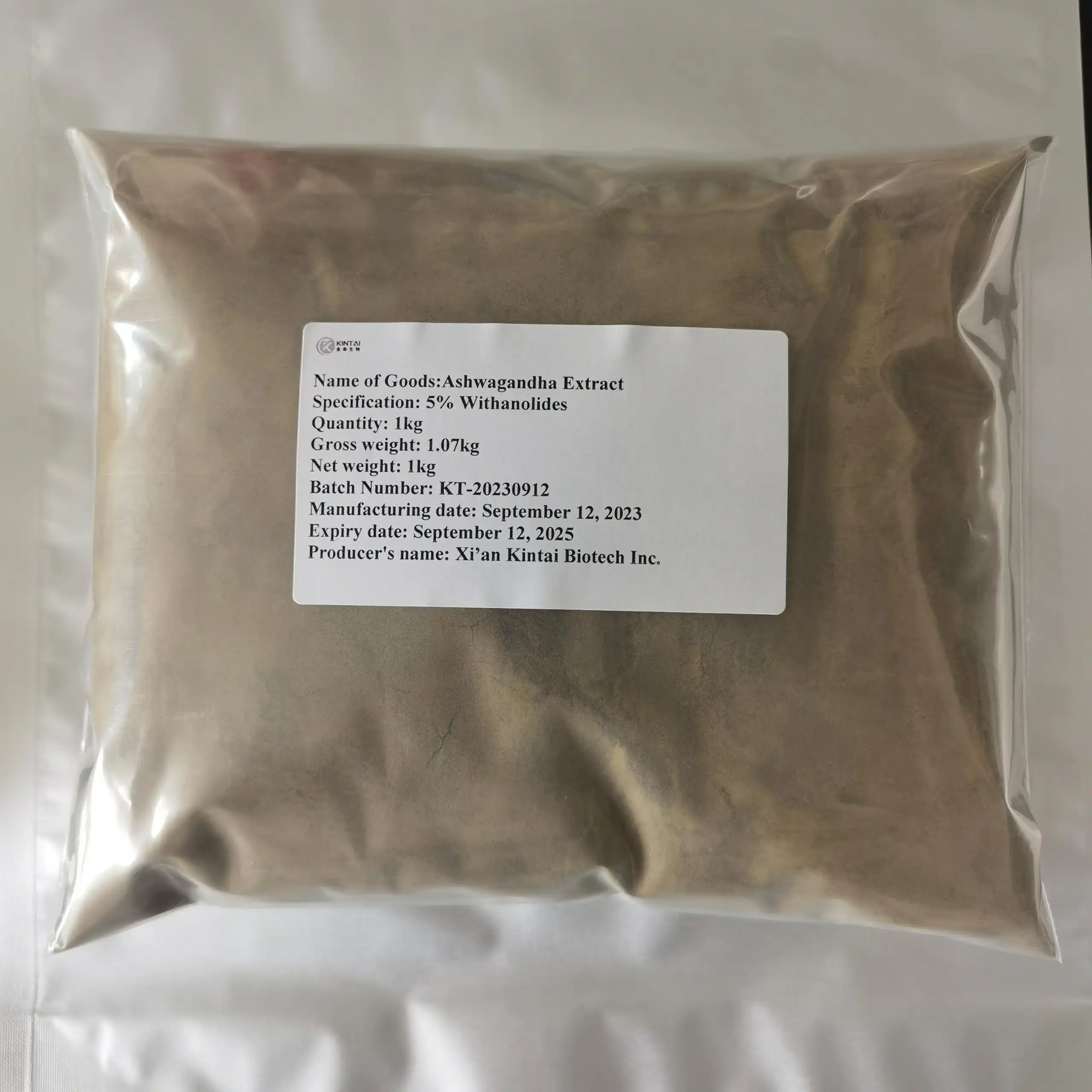
Which form of ashwagandha is more suitable for long-term use: powder or extract?
It is possible that ashwagandha extract and powder are appropriate when utilized for lengthy, extended periods of time, but there are a few points to consider when selecting which is most effective for you.
First, there is an opportunity that the withanolide content will increase. With a larger concentration of withanolides, as has been observed previously, the extract could exhibit greater therapeutic repercussions. Ashwagandha powder may constitute an option to consider if you believe that adding nutrients needs to be done more cautiously and softly.
On top of that, ashwagandha root extract powder may taste moderately severe or disagreeable to some people in general. The extract could prove to be a more practical option if you have difficulties incorporating the powder into your everyday routine or have an aversion to taste because it can often be found in fluid or capsule shape.
For long-term use, making the choice between the powdered form of ashwagandha and the extract will ultimately boil down to your personal tastes along with your particular requirements. Always seek the viewpoint of a medical professional or herbalist, who may offer personalized guidance on the basis of your particular circumstances, if you are uneasy about it.
Conclusion
In conclusion, both ashwagandha powder and extract offer numerous potential health benefits. The extract tends to have a higher concentration of withanolides, making it a more potent option. For people who prefer to employ a less aggressive strategy or discover the flavor uncomfortable, the powder could serve as a more suitable choice. The option to choose between powder and extract ultimately comes to a conclusion about personal tastes and rules and regulations.
Professional-grade Ashwagandha Extract Powder goods are accessible from Kintai Healthtech if you have a desire to incorporate Ashwagandha in your normal daily program. To guarantee intellectual ability and purity, all of our goods are extremely carefully manufactured and analyzed. For any further inquiries, send an email to us at herb@kintaibio.com.
References:
- Chandrasekhar, K., Kapoor, J., & Anishetty, S. (2012). A prospective, randomized double-blind, placebo-controlled study of safety and efficacy of a high-concentration full-spectrum extract of ashwagandha root in reducing stress and anxiety in adults.
- Wankhede, S., Langade, D., Joshi, K., Sinha, S. R., & Bhattacharyya, S. (2015). Examining the effect of Withania somnifera supplementation on muscle strength and recovery: a randomized controlled trial.
- Mishra, L., Singh, B. B., & Dagenais, S. (2000). Scientific basis for the therapeutic use of Withania somnifera (ashwagandha): a review.


